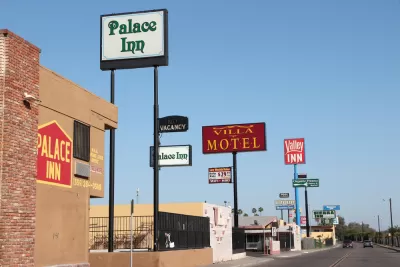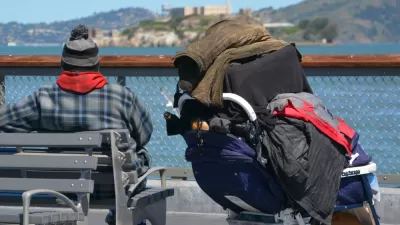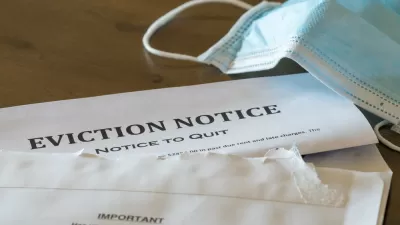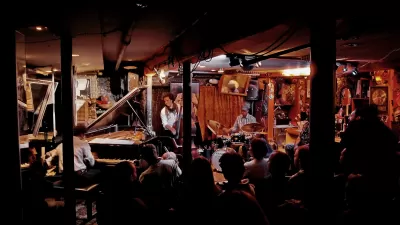California's Project Homekey has been a boon for homelessness support services as well as the economic and living conditions on a corridor in Fresno known as Motel Drive.

Melissa Montalvo reports on the local impacts in Fresno of a state program to convert unused hotel units into housing units for people experiencing homelessness during the pandemic:
State-funding efforts to shelter unhoused residents in converted motels could be a game-changer for Motel Drive, an area of Fresno that city leaders say has long been overrun by drugs, human trafficking, and prostitution.
Specifically,
Local city leaders say Project Homekey has been a success in Fresno, providing shelter for about 1,500 people over the past 18 months. Not only have the funds helped shelter the city’s unhoused residents, but they also provided the opportunity to invest in the transformation of Motel Drive, said Councilmember Miguel Arias in an interview with The Bee.
Councilmember Arias goes on to explain that Project Homekey gave Fresno the resources needed to clean up the corridor. The city used $35 million allotted by Project Homekey to buy four motels on the corridor. Funding from the Federal CARES Act provided resources for additional acquisitions.
More details about the facilities and services enabled by the state and federal funding are included in the source article. The article comes with the caveat that the programs are still inadequate to the task of mitigating the ongoing affordable housing crisis, both in Fresno and the rest of the state and nation.
FULL STORY: Inside one city’s multimillion-dollar effort to convert motels into affordable housing

Planetizen Federal Action Tracker
A weekly monitor of how Trump’s orders and actions are impacting planners and planning in America.

Chicago’s Ghost Rails
Just beneath the surface of the modern city lie the remnants of its expansive early 20th-century streetcar system.

San Antonio and Austin are Fusing Into one Massive Megaregion
The region spanning the two central Texas cities is growing fast, posing challenges for local infrastructure and water supplies.

Since Zion's Shuttles Went Electric “The Smog is Gone”
Visitors to Zion National Park can enjoy the canyon via the nation’s first fully electric park shuttle system.

Trump Distributing DOT Safety Funds at 1/10 Rate of Biden
Funds for Safe Streets and other transportation safety and equity programs are being held up by administrative reviews and conflicts with the Trump administration’s priorities.

German Cities Subsidize Taxis for Women Amid Wave of Violence
Free or low-cost taxi rides can help women navigate cities more safely, but critics say the programs don't address the root causes of violence against women.
Urban Design for Planners 1: Software Tools
This six-course series explores essential urban design concepts using open source software and equips planners with the tools they need to participate fully in the urban design process.
Planning for Universal Design
Learn the tools for implementing Universal Design in planning regulations.
planning NEXT
Appalachian Highlands Housing Partners
Mpact (founded as Rail~Volution)
City of Camden Redevelopment Agency
City of Astoria
City of Portland
City of Laramie





























